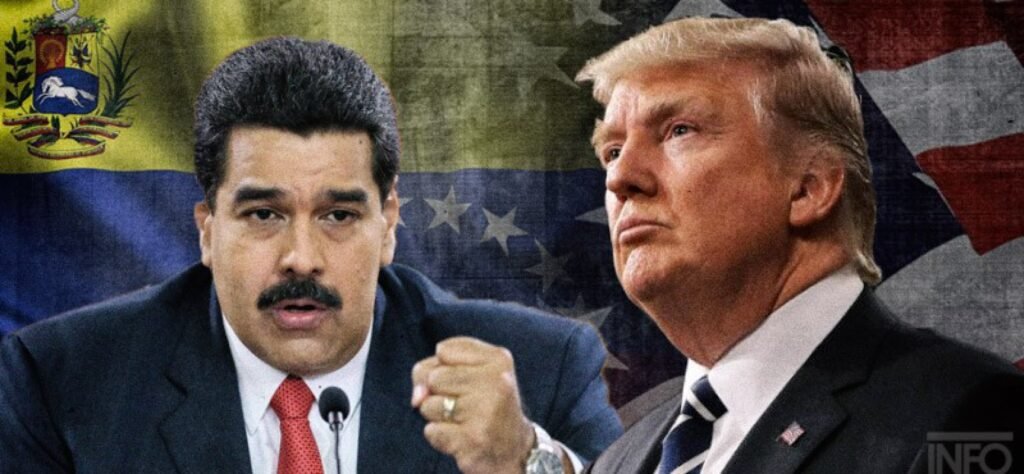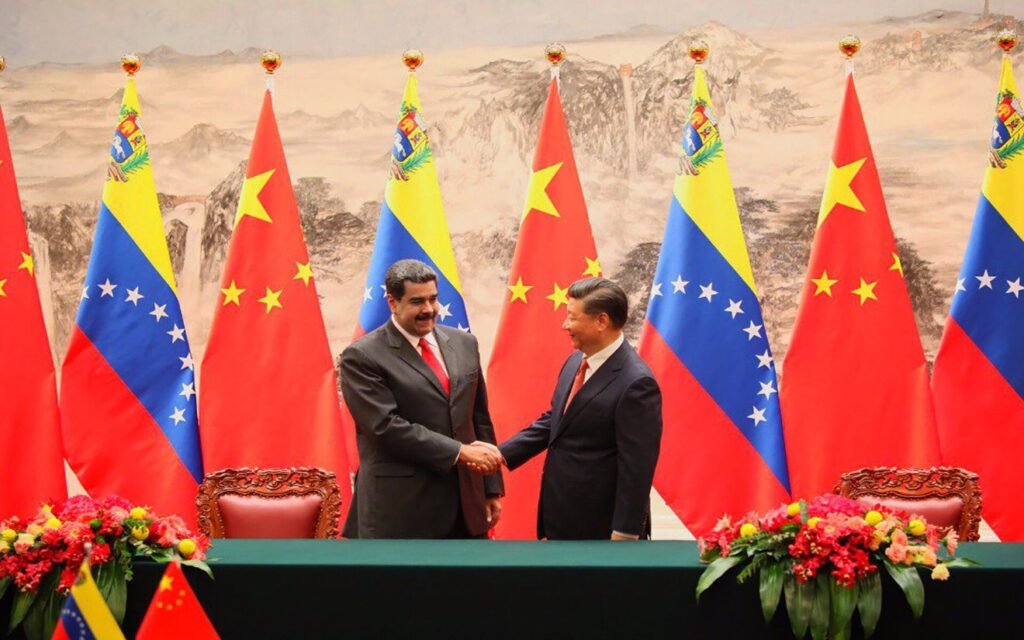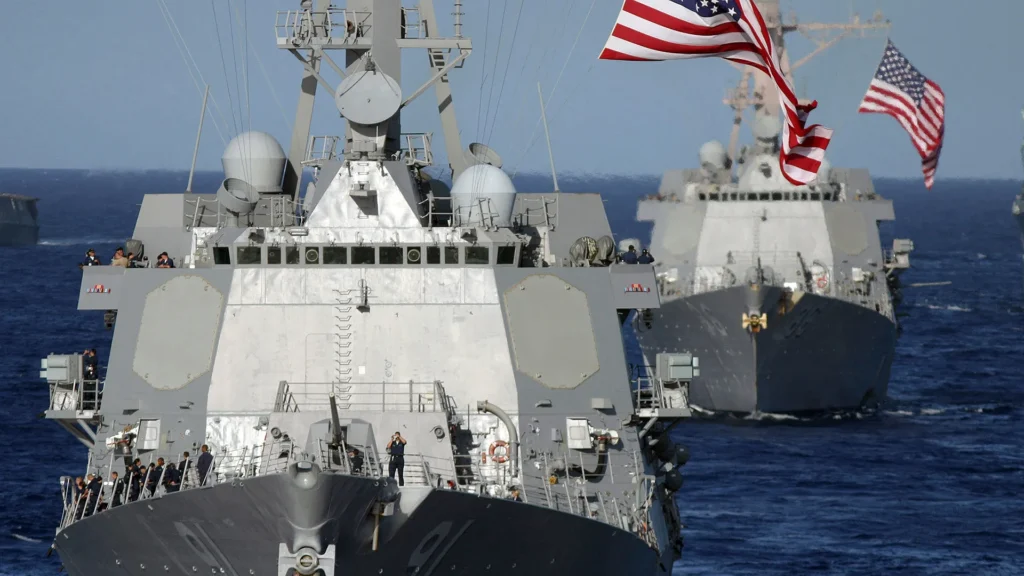On August 14, 2025, the United States deployed more than 4,000 troops to the Caribbean Sea, just off the coast of Venezuela. Officially presented as a counternarcotics and counterterrorism initiative, the operation, led by the Southern Command, includes advanced naval and air units, amphibious landing forces, and surveillance aircraft. This move represents a significant escalation in Washington’s pressure campaign against the Venezuelan government and reveals the deeper geopolitical calculations driving U.S. engagement in Latin America.

Though publicly framed as a security operation, the deployment is closely tied to longstanding political objectives in the region—chief among them, the removal of the Venezuelan government led by Nicolás Maduro. This aligns with a broader pattern of U.S. policy in the region, in which economic sanctions, diplomatic isolation, and military signaling function as instruments of coercive influence. By sending such a sizable and well-equipped military force, the United States is signaling its continued willingness to use hard power to shape political outcomes in Latin America.
A Familiar Pretext
The U.S. government has justified the Caribbean operation by referencing the so-called “Cartel of the Suns,” a group it has designated as a foreign terrorist organization. It claims that high-ranking Venezuelan officials are involved in drug trafficking and has linked the deployment to anti-narcotics goals. However, the scale and composition of the operation—including the presence of amphibious assault units and nuclear submarines—go far beyond what is required for interdiction efforts.
The use of narcotics enforcement as a pretext for military operations has historical precedent. In both Colombia and Afghanistan, U.S. involvement in anti-drug operations has coincided with expanded military activities and deepened strategic interests. In Venezuela’s case, the same rationale is now being used to justify a force posture that clearly serves broader political and economic objectives.
Geopolitical Stakes and Economic Interests
Venezuela holds one of the largest proven oil reserves in the world and has strategic importance in both regional and global contexts. Over the past decade, the Venezuelan state has expanded its economic and diplomatic ties with China, Russia, and other non-Western powers, presenting a challenge to the influence historically exercised by the United States in the hemisphere.
In this context, Washington’s actions are not merely about internal governance issues or alleged criminal networks. They are about reasserting influence over a resource-rich and geopolitically significant country that has moved away from alignment with U.S.-led institutions. This concern is sharpened by the development of alternative global partnerships and financial frameworks—such as those associated with BRICS—which seek to reduce reliance on Western capital and institutions.

The deployment, therefore, reflects more than a response to organized crime. It is an assertion of regional hegemony aimed at halting the further erosion of U.S. authority in the Americas.
Implications for Venezuela’s Political Future
President Nicolás Maduro’s government has responded by emphasizing national sovereignty and expanding civilian-military defense structures, including the Bolivarian Militia. The government has called on citizens to prepare for potential aggression and framed the U.S. deployment as a direct threat to the country’s independence.
However, while the external threat is real and serious, Venezuela’s internal situation remains deeply contradictory. The current administration has, over the years, implemented a range of economic liberalization measures, opened negotiations with foreign powers, and maintained strong control over political institutions. Independent labor movements have faced repression, and avenues for working-class political participation have narrowed.
In this context, the defense of national sovereignty cannot be reduced to support for the state itself. The Venezuelan people—particularly its working class—continue to face both external pressure and internal constraints. While resisting foreign intervention is necessary, it must not come at the expense of democratic accountability or social rights.
A Broader Pattern of Militarization
The increased militarization of U.S. foreign policy is not unique to Venezuela. Similar dynamics are unfolding in the Asia-Pacific region, the Arctic, and Eastern Europe, where the United States is expanding its military footprint amid rising geopolitical tensions. In all these cases, national sovereignty is subordinated to the demands of strategic competition, and the threat of military force is used to manage global instability generated by economic stagnation and systemic crisis.
For Latin America, this trend poses long-term challenges. The reemergence of military solutions to political problems—after decades of brutal experiences with coups and occupations—threatens to undermine regional institutions, polarize societies, and entrench elite dominance under the pretext of external threats

The United States’ deployment of military forces to the Caribbean is not an isolated security measure but part of a broader strategy to maintain influence in a region increasingly shaped by multipolar dynamics. Venezuela’s position—geographically strategic and economically significant—makes it a central target within this larger framework.
While the Maduro government rightly rejects U.S. interference, the internal contradictions of the Venezuelan state must also be addressed. Genuine sovereignty is not achieved solely through resisting foreign pressure; it must also be built through democratic participation, social justice, and the empowerment of the population.
The path forward for Venezuela—and for Latin America more broadly—depends on confronting imperialism in all its forms, while developing political and economic structures that serve the needs of the majority rather than the interests of external powers or domestic elites.

